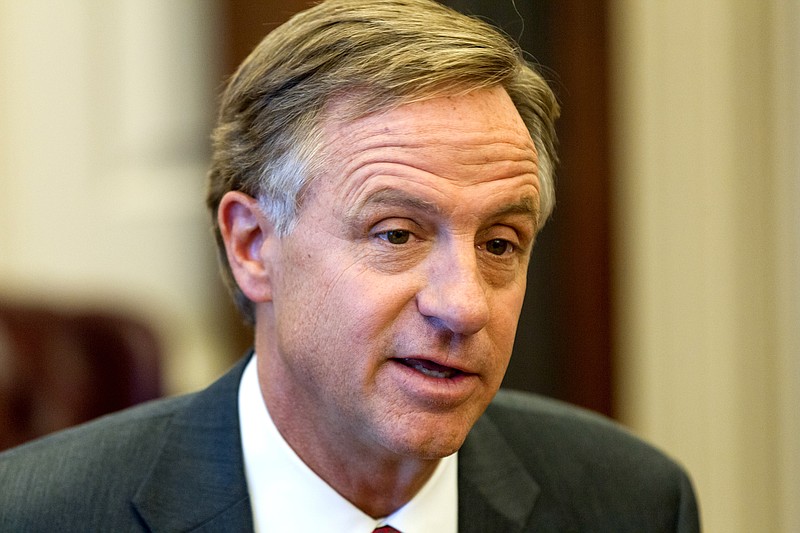NASHVILLE - Gov. Bill Haslam says investments in K-12 and higher education, including increases in teacher pay, will be a major focus in the fiscal year 2016 spending plan he will present to Tennessee lawmakers this evening.
At the same time, the Republican plans to recommend spending cuts of $200 million in other areas as he seeks to make room for must-do items and priorities while staying within revenue growth he's anticipating.
"The budget makes significant investments in K-12 education both in [state funding formula] and teacher salaries, which we'll be talking about," Haslam said earlier today as he gave reporters a brief overview of his State of the State address.
In higher education, Haslam said, "we are fully funding The Complete College Act," which rewards two and four-year institutions as well as colleges of applied technology that do better in moving students along toward graduation.
There are also funds for "some" capital construction projects in higher education, the governor said.
But Haslam said his administration faces the same issue it does every year in terms of developing a state budget that stays within available new revenues. He is counting on about $300 million in new revenues.
"[A] then if you take the things that we're required to do and then our new proposals, that totals about $500 million," the governor added.
Something has to give, Haslam said.
"Quick math tells you that requires about $200 million in cost cuts," he said. "The cost reductions that we make always involve hard choices, but we have to do them to balance the budget."
Last year, Haslam had proposed teacher pay increases and additional higher education funding but had to abandon them after state revenues fell significantly below projections.
Last summer, Haslam ordered state agencies to draw up plans to cut up to 7 percent of spending in anticipation of the fiscal year 2016 budget. At the time, he said the full cuts likely wouldn't be necessary but agencies needed to be prepared.
"We are not having to do that," Haslam said.
The governor said he "the other big news in this budget is around state government employees."
The number of employees eligible to retire will hit 40 percent next year, Haslam said of the state's aging workforce. "Now, that doesn't mean everyone will."
But he said the "reality" is coming "sooner rather than later in terms of the changes." The state began planning for it three years ago with changes to evaluations and civil service and is moving to "market-based" salaries to put workers "more in line with the private sector," Haslam said.
What he wants, Haslam said, is an environment where "people can say this really is a career that I'd like to choose and being with the state of Tennessee will not punish me financially and give me a challenging type of place I'd like to work long term."
More details will be forthcoming in his speech.
It is unclear whether Haslam will address his failure in last week's special session to persuade fellow Republicans who dominate the General Assembly to give him approval to proceed with his proposed Insure Tennessee program. The two-year pilot project sought to use $2.8 billion in federal Medicaid dollars to extend health insurance to 280,000 low-income Tennesseans under the Affordable Care Act.
